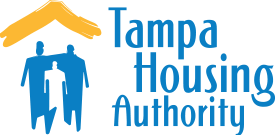RAD FAQs for Public Housing
Click through the following links for more information.
- What is the Rental Assistance Demonstration (RAD) program?
- Why is RAD needed?
- How does RAD benefit Tampa?
- How does a RAD conversion work?
- Is RAD an extension of public housing?
- What does RAD mean for the Public Housing families residing in THA's Public Housing sites?
- How long will it take to complete the conversion?
- Is RAD a conversion to the Housing Choice Voucher Program?
- Can we still have a resident council?
- How will Family Self-Sufficiency participants be handled in a RAD project?
- Do I still have to do community service?
- Will a RAD conversion affect my rent?
- After the RAD conversion, will the security deposit amount be higher than public housing?
- How will RAD affect the residents waiting for a unit size correction?
- Will there be information on the THA website?
Q: What is the Rental Assistance Demonstration (RAD) program?
A: RAD is a new federal program designed to address the demanding capital improvement and renovation cost funding requirements for public housing across the United States. RAD is a voluntary program of the Department of Housing and Urban Development (HUD). RAD seeks to preserve public housing by providing Public Housing Agencies (PHAs,) such as the Housing Authority of the City of Tampa (THA), with access to a more stable funding mechanism necessary to make needed improvements and ongoing maintenance requirements at all qualifying public housing properties.
Q: Why is RAD needed?
A: Public housing units across the country need more than $26 billion in repairs. HUD refers to these repair costs as capital needs. Over the past several years, Congress has not provided adequate funding to Public Housing Agencies to ensure their properties remain in good condition. As a result, Public Housing Agencies have had to make difficult decisions with regard to allocation of these scarce resources. Federal funding reductions for public housing in Tampa have resulted in the loss of more than $12 million in subsidy over the last four years. RAD provides Public Housing Agencies like THA a stable funding source for capital improvement requirements not subject to annual Congressional Budget Allocations.
Q: How does RAD benefit Tampa?
A:
- Through the RAD program, THA Public housing units will be preserved. In RAD, units move to a Section 8 platform with a long-term contract that, by law, must be renewed.
- THA has direct financial control and other benefits as the owner.
- Increased cash flow to address short-term capital needs
- Position property for re-syndication at end of the compliance period to address long-term capital needs
- Increase borrowing capacity through increased annual income
Q: How does a RAD conversion work?
A: For the individual resident, the RAD conversion is transparent. The resident will see little difference in their individual, respective financial requirements (rent & utilities). THA will receive its government funding in the form of a Property Based Voucher (PBV). For specific details on the RAD conversion see HUD.gov/rad
Q: Is RAD an extension of public housing?
A: No. In the case of THA, only the total number of public housing units within our inventory will be converted to RAD.
Q: What does RAD mean for the Public Housing families residing in THA's Public Housing sites?
A:
- Units will continue to serve as affordable housing.
- Except in rare cases (over/under housing), residents will see no difference in their financial responsibilities under RAD.
- Requalification or rescreening will not be required as part of the conversion.
Q: How long will it take to complete the conversion?
A: The complete conversion for thirteen THA public housing properties is anticipated to be complete by September 2016. (See Summary RAD Conversion attached).
Q: Is RAD a conversion to the Housing Choice Voucher Program?
A: This is a conversion to project based rental assistance, which is different than the conventional tenant-based HCV program.
Q: Can we still have a resident council?
A: Yes. Residents will have a right to organize and resident organizations will continue to receive resident participation funds, in accordance with THA's Policies.
Q: How will Family Self-Sufficiency participants be handled in a RAD project?
A: You may continue your participation in the FSS program until your current contract of participation ends.
Q: Do I still have to do community service?
A: No. The Project Based Rental Assistance (PBV) program does not require community service.
Q: Will a RAD conversion affect my rent?
A: Your rent contribution will most likely be the same as it was under public housing- generally no more than 30% of your household's adjusted gross income. Most residents will not have rent increases as a result of a RAD conversion.
Q: After the RAD conversion, will the security deposit amount be higher than public housing?
A: THA will continue recognizing security deposit amounts that have been previously paid by tenants who are in-place at the time of the RAD conversion and in accordance with THA's Policies.
Q: How will RAD affect the residents waiting for a unit size correction?
A: These households will be transferred to appropriately sized units when an appropriate sized unit becomes available.
Q: Will there be information on the THA website?
A: Yes. Website address is THAFL.com



